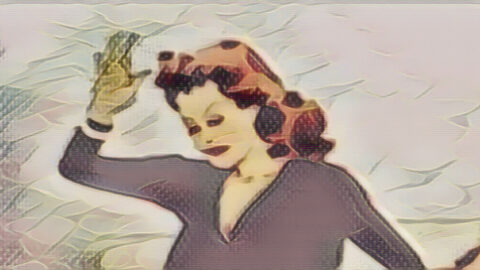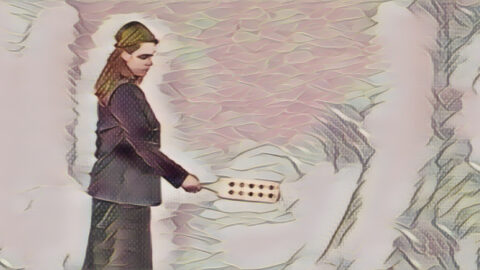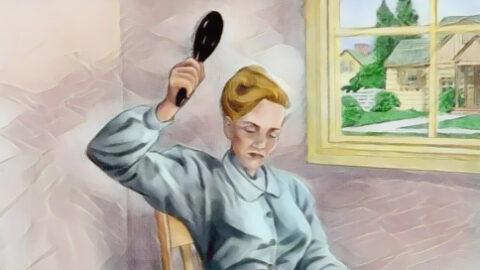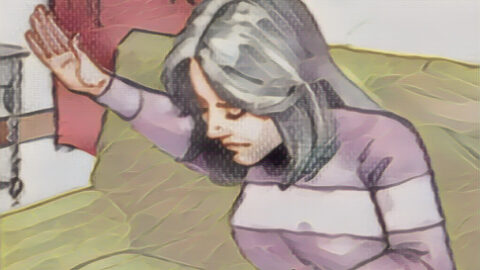(gap: 2s) On a certain Sunday of my childhood, the house was suffused with the gentle hush peculiar to early morning. The scent of lavender water lingered in the air, mingling with the faint aroma of toast from the kitchen. I found myself, quite by accident, in my parents’ bedroom—a place of mysterious grown-up order, where Father’s cufflinks gleamed in a little dish and Mother’s perfume bottles caught the sunlight on her dressing table. My father, Arthur, was a tall, dignified man with neatly combed silver hair and a penchant for pressed suits, his manner always measured and reserved. My mother, Mary, was petite, with kind blue eyes and a gentle but firm presence, her hair always perfectly arranged, and her voice soft yet unwavering.
With idle curiosity, I began to rummage through the drawers, my fingers brushing against silk scarves and old birthday cards. I was not searching for anything in particular, merely indulging the sort of aimless exploration that fills a child’s Sunday before church. It was then that I discovered a rather battered paperback, its cover creased and corners dog-eared, entitled Those Who Love. The title alone seemed to hum with forbidden promise.
I perched on the edge of the bed, heart thumping with the thrill of trespass, and opened the book. Its pages were filled with frank, almost clinical descriptions of the relations between men and women—matters I had only heard whispered about by older cousins at family gatherings. One chapter, ‘Pain and Pleasure’, told the story of a boy named Peter—a name as ordinary as my own schoolmates, like Susan or Margaret—who became oddly fascinated by the subject of corporal punishment. Peter, as described in the book, was a slender, fair-haired boy of about twelve, with an inquisitive face and a restless energy. He was known for his quick wit and a tendency to get into minor scrapes, his curiosity often leading him into trouble.
The tale began with Peter passing a classroom, where he glimpsed Susan, her dress bunched up and her undergarments about her knees, bent over a desk as Miss Thompson, the formidable teacher, delivered a spanking with a paddle. Susan was a quiet, studious girl with chestnut hair in neat plaits, her cheeks often flushed with embarrassment or concentration. Miss Thompson, on the other hand, was tall and imposing, with sharp features and a reputation for strictness; her dark hair was always pulled back in a severe bun, and her eyes missed nothing.
Inevitably, young Peter found himself strangely stirred by this spectacle. Thereafter, he would wander the neighbourhood after supper, the air thick with the scent of privet and the distant clatter of crockery, hoping to overhear the unmistakable sounds of a spanking being administered to some hapless child. He wrote of the peculiar anticipation, the way his heart would race as he passed the houses, listening for the telltale cries. Margaret, another of Peter’s friends, was a lively, outspoken girl with freckles and unruly red hair, always ready with a mischievous grin and a quick retort.
On more than one occasion, Peter confessed, he could hear his friend Margaret being disciplined, and sometimes, emboldened by curiosity, he crept up to an open window, peering through the lace curtains to witness the event. The mixture of guilt and excitement was almost too much to bear.
Eventually, Peter’s own mischief caught up with him. He was summoned to the drawing room, where the heavy curtains were drawn and the ticking of the mantel clock seemed unnaturally loud. The air was thick with anticipation, and the faint scent of furniture polish mingled with the nervous sweat on Peter’s brow. He was instructed to lie across the armrest of the large settee, the upholstery cool and scratchy beneath his palms, his heart pounding so fiercely he thought it might leap from his chest. Every sound in the room seemed magnified—the rustle of his clothing, the creak of the settee, the soft, deliberate footsteps of his mother as she approached. Mrs. Evans, Peter’s mother, was a stately woman in her forties, with a stern but fair countenance, her hair streaked with grey and always pinned up. She was known in the neighbourhood for her unwavering sense of discipline and her deep, commanding voice, but also for the warmth she showed her children in quieter moments.
His mother, Mrs. Evans, appeared, her face set with a look of grave determination. She produced a leather strap, its surface worn smooth from years of use, and with a few stern words, she positioned herself behind him. There was a moment of unbearable suspense—a pause in which Peter’s breath caught and the world seemed to shrink to the narrow space between his body and the strap. Then, with a swift, practiced motion, the first stroke landed. The sound was sharp and startling, a crack that seemed to reverberate through the room, followed by a hot, stinging sensation that blossomed across his skin. Peter’s fingers gripped the armrest, knuckles white, as each subsequent stroke fell—each one a mingling of pain and a strange, electric thrill that coursed through him. The room filled with the rhythmic cadence of the strap, the ticking clock, and Peter’s own ragged breathing. With every swat, his emotions tumbled—shame, fear, and, to his astonishment, a peculiar pleasure that left him dizzy and confused. When it was over, Mrs. Evans set the strap aside and regarded him with a mixture of sternness and maternal concern. Peter wrote, with a kind of astonished honesty, that he began to feel a peculiar pleasure mingled with the pain, and when it was over, he realised he had enjoyed the experience rather more than he ought.
I read these accounts with a mixture of fascination and disbelief, my cheeks burning as I imagined the scenes. In time, curiosity got the better of me, and I attempted to recreate the episode in the privacy of our own parlour. I bent over the armrest of our faded green sofa, clutching Mother’s hairbrush, and delivered a few tentative swats to my own person, half-expecting to be discovered at any moment. To my surprise, I found the sensation not entirely disagreeable.
To my disappointment, my own parents—Arthur and Mary, as proper as any in our street—never resorted to corporal punishment. Instead, they favoured lengthy discussions, delivered in the measured tones of the BBC Home Service, about the importance of honesty, tidiness, and respect for one’s elders. My latest infraction would be dissected at length, until I almost wished for a swift and decisive end.
It was not until I reached my middle fifties, with the benefit of hindsight and a certain wry amusement, that I reflected upon the matter. Perhaps, I thought, my parents ought to have spoken to me once, perhaps twice, but upon a third offence, they should have taken firmer action—if only for the sake of variety.
After a suitable lecture, I rather think my body should have been placed across a parental lap and subjected to a ‘red bottom discussion’—as the book so delicately put it—to ensure I minded my manners in future. I am quite convinced that a brisk encounter with the flat side of a hairbrush would have taught me personal responsibility at a much earlier age, and spared us all a great many tedious conversations.

























































